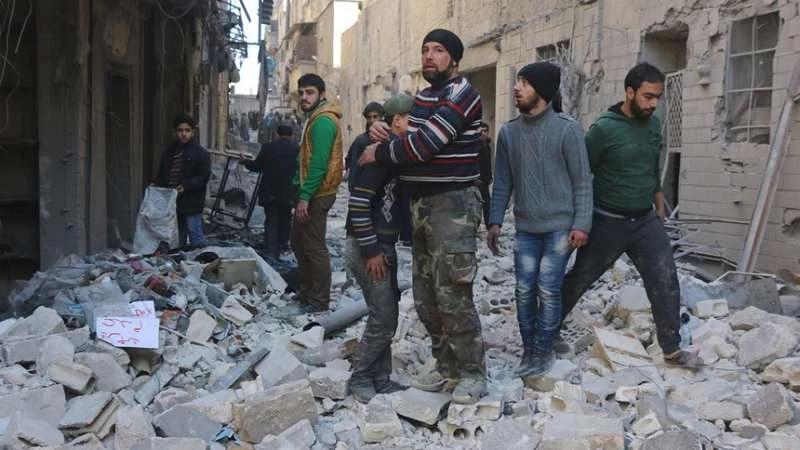It is hardly a coincidence that the bombardment of Aleppo, a symbol of the 2011 anti-Assad revolution, started just as peace talks were being attempted in Geneva. Predictably, the talks soon faltered. Russian military escalation in support of the Assad army was meant to sabotage any possibility that a genuine Syrian opposition might have its say on the future of the country. It was meant to thwart any plans the west and the UN had officially laid out. And it entirely contradicted Moscow’s stated commitment to a political process to end the war.
The aftershocks will be felt far and wide. If there is one thing Europeans have learned in 2015, it is that they cannot be shielded from the effects of conflict in the Middle East. And if there is one thing they learned from the Ukraine conflict in 2014, it is that Russia can hardly be considered Europe’s friend. It is a revisionist power capable of military aggression.
In fact, as the fate of Aleppo hangs in the balance, these events have – as no other perhaps since the beginning of the war – highlighted the connections between the Syrian tragedy and the strategic weakening of Europe and the west in general. This spillover effect is something Moscow has not only paid close attention to, but also in effect fueled. The spread of instability fits perfectly with Russia’s goal of seeking dominance by exploiting the hesitations and contradictions of those it identifies as adversaries.
Aleppo will define much of what happens next. A defeat for Syrian opposition forces would further empower ISIS in the myth that it is the sole defender of Sunni Muslims – as it terrorists the population under its control. There are many tragic ironies here, not least that western strategy against ISIS has officially depended on building up local Syrian opposition ground forces so that they might one day push the jihadi insurgency out of its stronghold in Raqqa. If the very people that were meant to be counted on to do that job as foot soldiers now end up surrounded and crushed in Aleppo, who will the west turn to? Russia has all along claimed it was fighting ISIS – but in Aleppo it is helping to destroy those Syrian groups that have in the past proved to be efficient against ISIS.
Natalie Nougayrède in The Guardian



التعليقات (0)